WOW
SLOW TRAVEL
52 CITIES
1 WEEK
EACH CITY
52 WEEKS
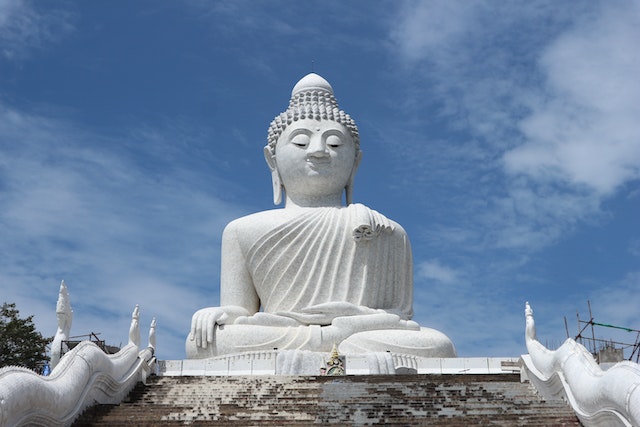
Thailand
Thailand, located in Southeast Asia, is a popular retirement destination for people from around the world, including Americans. It offers a diverse range of options for retirees, from vibrant cities to serene beach towns and picturesque mountain villages. Here’s an overview of Thailand as a retirement destination:
Cost of Living:
Thailand is known for its affordable cost of living, which includes low housing costs, inexpensive healthcare, and reasonably priced daily expenses. It offers excellent value for retirees.
Healthcare:
Thailand has a well-developed healthcare system with modern hospitals and medical facilities. Medical care is of high quality, and many healthcare professionals speak English.
Popular medical tourism destinations like Bangkok and Chiang Mai offer retirees access to world-class healthcare services.
Visa Options:
Thailand offers various visa options for retirees, including the Retirement Visa (Non-Immigrant O-A Visa) and the Thai Elite Visa. Each has specific requirements and benefits, so it’s essential to research and choose the one that suits your needs.
Diverse Locations:
Bangkok: The bustling capital city offers a cosmopolitan lifestyle with shopping centers, restaurants, cultural attractions, and excellent healthcare facilities.
Chiang Mai: Located in northern Thailand, Chiang Mai is known for its relaxed atmosphere, lower cost of living, and proximity to mountains and nature.
Phuket: Thailand’s largest island is a beach paradise with a vibrant expatriate community, making it a popular choice for retirees who enjoy island living.
Hua Hin: A coastal town with a royal palace, Hua Hin offers a relaxed seaside lifestyle and is known for its golf courses.
Pattaya: This coastal city offers a lively expatriate community, water sports, and a range of entertainment options.
Chiang Rai: A quieter option in northern Thailand, Chiang Rai is known for its natural beauty, including the White Temple (Wat Rong Khun).
Koh Samui: An island in the Gulf of Thailand, Koh Samui is famous for its beaches, lush landscapes, and a slower pace of life.
Culture and Cuisine:
Thailand’s rich culture, vibrant festivals, and delicious cuisine are major draws. From street food stalls to fine dining restaurants, you’ll find an array of Thai dishes to savor.
Community:
Thailand has a thriving expatriate community, particularly in popular retirement destinations. This makes it easy to meet like-minded individuals and build a support network.
Climate:
Thailand has a tropical climate with distinct wet and dry seasons. Depending on the region, you can enjoy warm weather year-round.
Safety and Friendly Locals:
Thailand is generally considered safe, and the local people are known for their friendliness and hospitality.
Thailand’s combination of affordability, natural beauty, cultural richness, and healthcare options makes it an attractive destination for retirees. However, it’s crucial to research visa requirements, understand the local culture and regulations, and plan your retirement carefully to ensure a smooth transition and enjoyable retirement experience in Thailand
Thailand offers a variety of cities and regions that are popular among American retirees due to their affordability, diverse lifestyle options, and beautiful landscapes. Here are some of the best cities and areas to consider for retirement in Thailand:
Chiang Mai:
Located in northern Thailand, Chiang Mai is a top choice for retirees. It offers a more relaxed pace of life, a lower cost of living compared to Bangkok, and a pleasant climate.
The city is surrounded by lush mountains and is known for its cultural heritage, including temples and festivals.
Chiang Mai has a thriving expatriate community, excellent healthcare facilities, and a range of housing options.
Bangkok:
Thailand’s capital city, Bangkok, is a bustling metropolis with a vibrant expatriate community. While it’s more urban and fast-paced than some other options, it provides excellent healthcare facilities, a variety of international cuisine, and cultural attractions.
Bangkok offers various expat-friendly neighborhoods, including Sukhumvit and Silom, where you can find condos and apartments suitable for retirees.
Phuket:
Phuket is Thailand’s largest island and a popular choice for retirees who enjoy beach living. It offers a tropical climate, stunning beaches, and a wide range of water activities.
The island has a developed expatriate community, particularly in areas like Patong and Phuket Town.
While the cost of living can be higher than some other Thai cities, it’s still affordable compared to Western countries.
Hua Hin:
Hua Hin, located on the Gulf of Thailand, is a coastal town known for its relaxed seaside lifestyle. It’s a popular choice for retirees and has a royal palace.
The town offers golf courses, excellent seafood restaurants, and a quieter atmosphere compared to more touristy areas.
Pattaya:
Pattaya is another coastal city known for its vibrant expat community, water sports, and a range of entertainment options.
While it has a reputation for nightlife, Pattaya also offers quieter neighborhoods suitable for retirees.
Koh Samui:
Koh Samui, an island in the Gulf of Thailand, is famous for its beautiful beaches, lush landscapes, and a slower pace of life.
It’s an idyllic retirement destination for those who enjoy island living.
Chiang Rai:
Chiang Rai, located in northern Thailand, offers a quieter and more off-the-beaten-path retirement experience. It’s known for its natural beauty, including the White Temple (Wat Rong Khun)
When considering retirement in Thailand, it’s essential to understand visa requirements and regulations for retirees. Thailand offers different visa options, including the Retirement Visa, which requires proof of financial means. Consulting with local authorities and expatriate communities can provide valuable guidance for planning your retirement in Thailand. Additionally, visiting potential retirement destinations to assess their suitability for your lifestyle and preferences is recommended
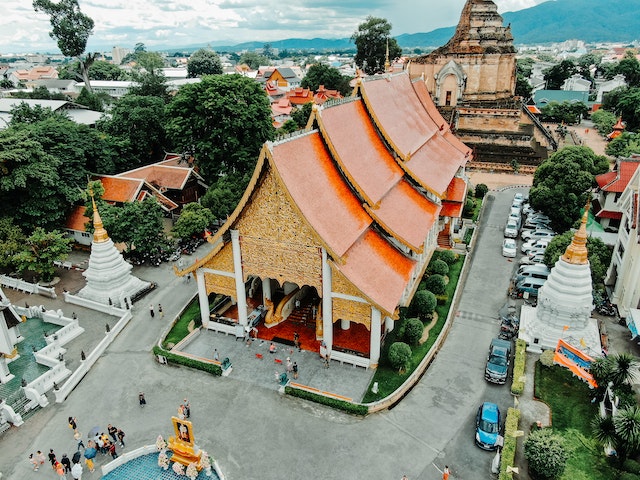
Chiang Mai
Chiang Mai, located in northern Thailand, is a popular retirement destination known for its relaxed atmosphere, cultural richness, and affordability. It offers a diverse range of attractions and amenities, making it an attractive choice for American retirees. Here’s what you need to know about retiring in Chiang Mai:
Cost of Living:
Chiang Mai is renowned for its low cost of living compared to many Western countries. Housing, food, transportation, and healthcare are all relatively affordable, making it budget-friendly for retirees.
Climate:
Chiang Mai enjoys a pleasant climate with distinct seasons. The cool season, from November to February, is particularly favored by retirees for its comfortable temperatures.
Cultural Richness:
The city is steeped in history and culture, with numerous temples (wats), historic sites, and festivals. The old city area is a UNESCO World Heritage site.
Chiang Mai offers opportunities to learn about Thai traditions, Buddhism, and local crafts.
Healthcare:
Chiang Mai has modern hospitals and medical facilities with English-speaking staff. The city is known for its quality healthcare services and medical tourism.
Retirees can access affordable healthcare without compromising on quality.
Community and Lifestyle:
Chiang Mai has a thriving expatriate community, providing retirees with opportunities to connect with people from around the world.
The lifestyle in Chiang Mai is laid-back, allowing retirees to enjoy a more relaxed pace of life.
Housing Options:
Retirees can choose from a variety of housing options, including apartments, condos, townhouses, and houses in gated communities.
Many expatriates prefer living in the Nimmanhaemin and Old City areas due to their convenience and amenities.
Activities and Recreation:
Chiang Mai offers a range of recreational activities, including hiking, biking, and bird-watching in the surrounding mountains and forests.
The city has golf courses, fitness centers, and cultural classes like cooking and Thai language lessons.
Visa and Legal Considerations:
Retirees can apply for the Thai Retirement Visa (Non-Immigrant O-A Visa) to stay long-term in Thailand. This visa requires proof of financial means.
Transportation:
Getting around Chiang Mai is easy with tuk-tuks, songthaews (shared taxis), and motorbike rentals. The city is pedestrian-friendly in many areas.
Festivals and Events:
Chiang Mai hosts numerous festivals and events throughout the year, including the Yi Peng Lantern Festival and the Songkran (Thai New Year) water festival.
Chiang Mai’s combination of a low cost of living, pleasant climate, cultural richness, and welcoming community make it an attractive retirement destination. Whether you’re interested in exploring temples, embracing local traditions, or enjoying outdoor activities, Chiang Mai offers retirees a fulfilling and affordable retirement experience in a charming northern Thai city
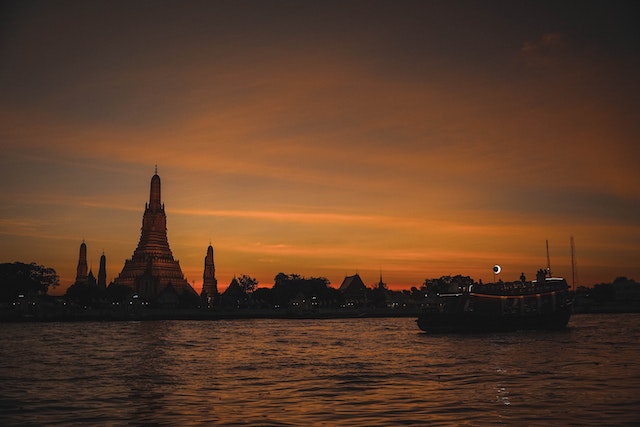
Bangkok
Bangkok, Thailand’s capital city, offers a vibrant and diverse retirement experience. While it may be more bustling and fast-paced than some other Thai cities, it provides retirees with access to modern amenities, world-class healthcare, a wide range of cultural attractions, and a dynamic expatriate community. Here’s what you need to know about retiring in Bangkok:
Cost of Living:
Bangkok’s cost of living can vary widely depending on your lifestyle and housing choices. While some upscale areas can be expensive, the city offers plenty of affordable options for housing, dining, and transportation.
Healthcare:
Bangkok boasts some of Thailand’s best hospitals and healthcare facilities, many of which are internationally accredited. The city is a hub for medical tourism, and retirees can access top-notch medical care.
Cultural Attractions:
Bangkok is rich in cultural heritage, with numerous temples (wats), historic sites, and museums to explore. The Grand Palace, Wat Pho, and Wat Arun are among the city’s iconic landmarks.
Shopping and Dining:
The city offers a wide range of shopping experiences, from traditional markets like Chatuchak Weekend Market to upscale shopping malls like Siam Paragon.
Bangkok’s dining scene is diverse, with countless street food vendors, local eateries, and international restaurants.
Transportation:
Bangkok has a well-developed transportation system, including a metro and skytrain, making it easy to navigate the city. Taxis and tuk-tuks are also readily available.
Housing Options:
Retirees can find various housing options in Bangkok, including apartments, condos, and houses. Popular expatriate neighborhoods include Sukhumvit, Silom, and Sathorn.
Community and Lifestyle:
Bangkok has a sizable expatriate community, providing opportunities for socializing and networking.
The lifestyle in Bangkok can be as relaxed or as active as you desire, with options for cultural activities, nightlife, and entertainment.
Visa and Legal Considerations:
Retirees can apply for the Thai Retirement Visa (Non-Immigrant O-A Visa) to stay long-term in Thailand. This visa requires proof of financial means.
Climate:
Bangkok has a tropical climate with distinct wet and dry seasons. The hot season typically runs from March to May.
Events and Festivals:
The city hosts a variety of events and festivals throughout the year, including Songkran (Thai New Year) celebrations and Loy Krathong, the Festival of Lights.
While Bangkok may not have the same serene and laid-back atmosphere as some other Thai cities, it offers retirees a dynamic and cosmopolitan retirement experience. Whether you’re interested in cultural exploration, shopping, dining, or simply enjoying the city’s energy, Bangkok provides a wide range of opportunities for retirees to embrace an active and fulfilling retirement lifestyle
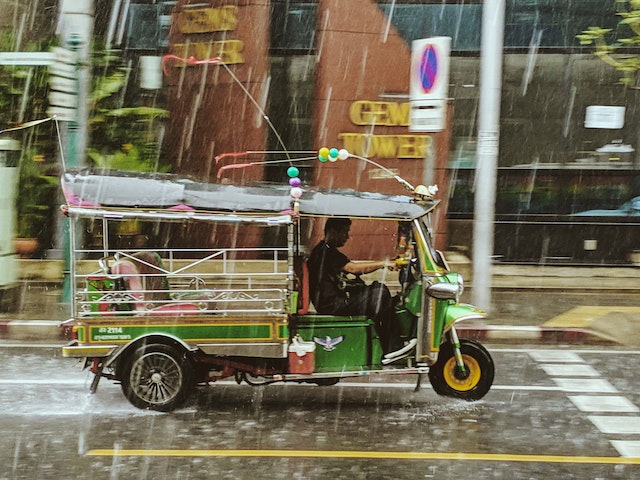
Phuket
Phuket, Thailand’s largest island, is a popular destination for retirees, expatriates, and tourists alike. It’s known for its stunning beaches, vibrant nightlife, and a wide range of activities and amenities. Here’s what you need to know about retiring in Phuket:
Cost of Living:
Phuket offers a range of living options, from budget-friendly to upscale. While some areas can be expensive, it’s possible to find affordable housing, dining, and daily expenses.
Beaches and Natural Beauty:
Phuket boasts some of Thailand’s most beautiful beaches, including Patong Beach, Karon Beach, and Kata Beach. The island is surrounded by crystal-clear waters and offers water sports and recreational activities.
Beyond the beaches, Phuket’s interior has lush landscapes, jungles, and hills for hiking and exploration.
Healthcare:
The island has modern hospitals and medical facilities, including international clinics and specialized healthcare services.
Phuket is a medical tourism hub, offering quality healthcare for retirees.
Diverse Lifestyle:
Phuket has a diverse lifestyle scene, from the bustling nightlife of Patong to the more relaxed and family-friendly areas.
The island offers a wide range of dining options, from street food to fine dining restaurants.
Water Activities:
Retirees can enjoy a variety of water activities, including swimming, snorkeling, scuba diving, and sailing. Phuket’s waters are known for their marine life and diving spots.
Golf:
Phuket has several world-class golf courses, making it a great destination for golf enthusiasts.
Island Hopping:
From Phuket, you can easily access other stunning nearby islands like Phi Phi Islands, Similan Islands, and James Bond Island.
Community and Lifestyle:
Phuket has a significant expatriate community, offering retirees opportunities to connect with people from around the world.
The lifestyle on the island can range from laid-back and serene to vibrant and social, depending on your location.
Visa and Legal Considerations:
Retirees can apply for the Thai Retirement Visa (Non-Immigrant O-A Visa) to stay long-term in Thailand. This visa requires proof of financial means.
Transportation:
Phuket has an international airport with regular flights to major cities in Asia and beyond. Getting around the island is easy with taxis, tuk-tuks, and motorbike rentals.
Climate:
Phuket has a tropical monsoon climate with a wet season from May to October and a dry season from November to April.
Phuket offers retirees a tropical paradise with a wide range of activities and lifestyle options. Whether you prefer beachfront living, exploring nature, or enjoying the island’s nightlife, Phuket has something to offer for retirees seeking an active and vibrant retirement experience in a stunning coastal setting
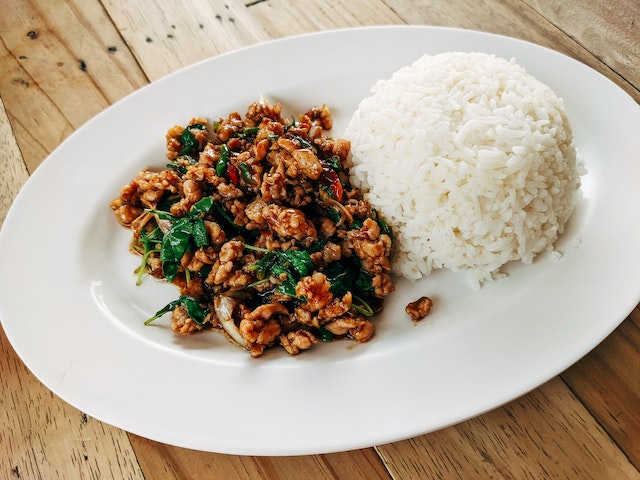
Hua Hin
Hua Hin, a coastal town in Thailand, is a popular retirement destination known for its relaxed seaside lifestyle, royal heritage, and golf courses. It’s located on the Gulf of Thailand, making it an attractive choice for retirees looking for a serene and beachside retirement experience. Here’s what you need to know about retiring in Hua Hin:
Cost of Living:
Hua Hin offers a more affordable cost of living compared to larger cities like Bangkok or Phuket. Housing, dining, and daily expenses are generally reasonably priced.
Beaches and Scenic Beauty:
The town is known for its clean beaches and pleasant coastal atmosphere. Hua Hin Beach is a popular spot for swimming, sunbathing, and water sports.
The nearby Khao Sam Roi Yot National Park offers opportunities for hiking and exploring caves and limestone formations.
Golf:
Hua Hin is a haven for golf enthusiasts, with several world-class golf courses. The town has earned a reputation as Thailand’s golf capital.
Healthcare:
Hua Hin has hospitals and medical clinics that can address common healthcare needs. For more specialized care, nearby Bangkok is accessible.
Community and Lifestyle:
Hua Hin has a growing expatriate community, providing opportunities for socializing and meeting people from around the world.
The lifestyle in Hua Hin is generally laid-back, making it suitable for retirees seeking a quiet environment.
Royal Heritage:
Hua Hin is home to the Klai Kangwon Palace, a royal residence used by the Thai royal family. The town has a strong connection to the monarchy and a respectful atmosphere.
Transportation:
Getting around Hua Hin is easy with tuk-tuks, taxis, and motorbike rentals. The town also has a train station with connections to Bangkok.
Visa and Legal Considerations:
Retirees can apply for the Thai Retirement Visa (Non-Immigrant O-A Visa) to stay long-term in Thailand. This visa requires proof of financial means.
Climate:
Hua Hin enjoys a tropical climate with a dry season from November to April and a wet season from May to October.
Dining and Cuisine:
The town offers a variety of dining options, including fresh seafood restaurants, Thai street food stalls, and international cuisine.
Hua Hin offers retirees a tranquil and beachfront retirement experience with access to golfing, natural beauty, and a serene atmosphere. Whether you’re interested in golfing by the sea, enjoying fresh seafood, or simply unwinding on the beach, Hua Hin provides retirees with a peaceful and coastal retirement destination in Thailand
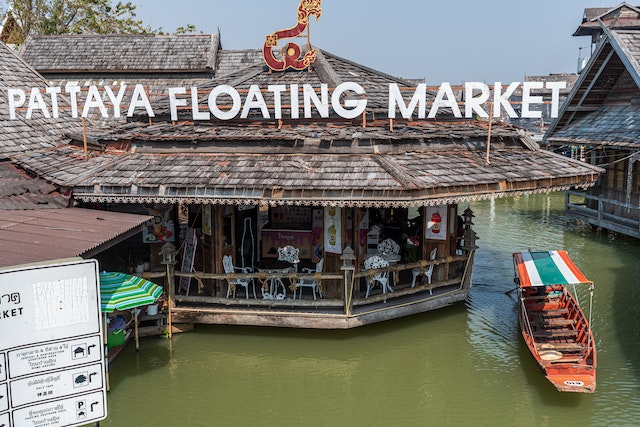
Pattaya
Pattaya, a coastal city in Thailand, is known for its vibrant nightlife, water sports, and entertainment options. While it’s famous for its lively atmosphere, it also has areas suitable for retirees who prefer a quieter lifestyle. Here’s what you need to know about retiring in Pattaya:
Cost of Living:
Pattaya offers a range of living options to suit different budgets. While some areas can be pricier, you can find more affordable housing, dining, and daily expenses.
Beaches and Water Activities:
The city is known for its beaches, including Pattaya Beach and Jomtien Beach. Water sports like swimming, jet skiing, and parasailing are popular here.
The nearby islands, including Koh Larn and Koh Samet, offer opportunities for island hopping and snorkeling.
Nightlife and Entertainment:
Pattaya is famous for its vibrant nightlife, with bars, clubs, and entertainment venues. The Walking Street is a well-known nightlife area.
The city hosts various events and festivals, including music festivals and cultural celebrations.
Healthcare:
Pattaya has hospitals and medical facilities that can address common healthcare needs. For more specialized care, nearby Bangkok is accessible.
Community and Lifestyle:
Pattaya has a diverse expatriate community, providing opportunities for socializing and meeting people from around the world.
The lifestyle in Pattaya can range from lively and social to quieter and more relaxed, depending on your location.
Golf:
The city and its surrounding areas have several golf courses for enthusiasts.
Visa and Legal Considerations:
Retirees can apply for the Thai Retirement Visa (Non-Immigrant O-A Visa) to stay long-term in Thailand. This visa requires proof of financial means.
Transportation:
Getting around Pattaya is convenient, with baht buses, taxis, and motorbike taxis readily available.
Climate:
Pattaya has a tropical climate with a dry season from November to April and a wet season from May to October.
Dining and Cuisine:
The city offers a diverse range of dining options, from street food stalls to international restaurants. You can enjoy Thai cuisine as well as international dishes.
Pattaya is a city of contrasts, offering retirees the choice between a vibrant and social lifestyle or a quieter and more relaxed one. Whether you’re interested in nightlife and entertainment, water activities, or simply enjoying the beach, Pattaya provides retirees with a lively coastal retirement destination in Thailand
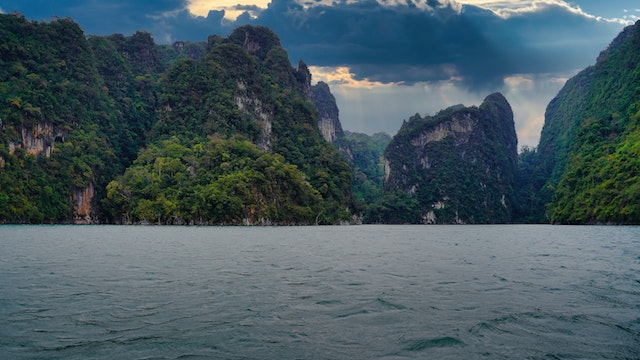
Koh Samui
Koh Samui, located in the Gulf of Thailand, is a picturesque island known for its stunning beaches, lush landscapes, and a relaxed pace of life. It’s a popular retirement destination, offering a tropical paradise with a range of amenities and activities. Here’s what you need to know about retiring in Koh Samui:
Cost of Living:
Koh Samui’s cost of living can vary depending on your lifestyle and housing choices. While some areas can be more expensive, you can find affordable options for housing, dining, and daily expenses.
Beaches and Natural Beauty:
The island is renowned for its beautiful beaches, including Chaweng Beach, Lamai Beach, and Bophut Beach. You can enjoy swimming, sunbathing, and water sports.
Koh Samui’s interior offers lush jungles, waterfalls, and hiking trails for nature enthusiasts.
Healthcare:
The island has medical clinics and hospitals that can address common healthcare needs. For specialized care, you can consider nearby hospitals on the mainland.
Community and Lifestyle:
Koh Samui has a growing expatriate community, providing opportunities to connect with people from various countries.
The lifestyle on the island is generally laid-back, making it suitable for retirees seeking a serene environment.
Visa and Legal Considerations:
Retirees can apply for the Thai Retirement Visa (Non-Immigrant O-A Visa) to stay long-term in Thailand. This visa requires proof of financial means.
Transportation:
Getting around the island is convenient with taxis, motorbike rentals, and songthaews (shared taxis). The island also has a small airport with domestic and international flights.
Climate:
Koh Samui has a tropical climate with a wet season from May to October and a dry season from November to April.
Dining and Cuisine:
The island offers a diverse range of dining options, including Thai cuisine, seafood, and international dishes. You can enjoy beachfront dining and fresh seafood.
Water Activities:
Koh Samui is perfect for water activities like snorkeling, scuba diving, kayaking, and sailing. The surrounding waters have vibrant marine life and coral reefs.
Golf:
While the island doesn’t have as many golf courses as some mainland areas, there are options for golf enthusiasts.
Koh Samui provides retirees with a tranquil and tropical retirement experience. Whether you’re interested in beachfront living, exploring nature, or simply enjoying a relaxed island lifestyle, Koh Samui offers retirees a serene and idyllic retirement destination in Thailand
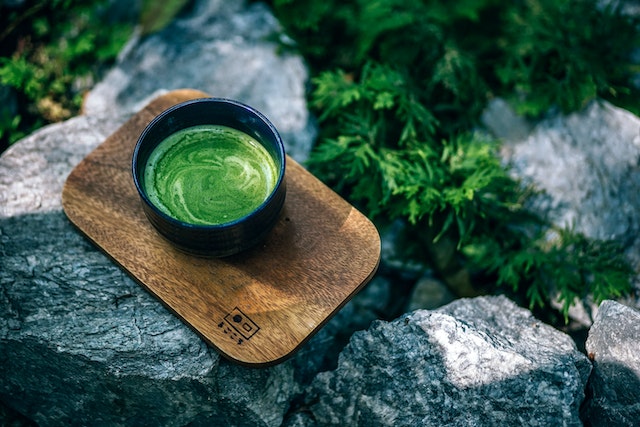
Chiang Rai
Chiang Rai, located in northern Thailand, is a serene and culturally rich city known for its natural beauty, historical sites, and a slower pace of life. It offers retirees a peaceful and off-the-beaten-path retirement experience. Here’s what you need to know about retiring in Chiang Rai:
Cost of Living:
Chiang Rai is one of the more affordable destinations in Thailand, making it budget-friendly for retirees. Housing, dining, and daily expenses are generally reasonably priced.
Natural Beauty:
The city is surrounded by lush mountains, forests, and picturesque landscapes. Notable natural attractions include Doi Tung, Doi Mae Salong, and Phu Chi Fah, which offer hiking, trekking, and stunning views.
Cultural Richness:
Chiang Rai is steeped in culture, with numerous temples (wats) and historical sites. The White Temple (Wat Rong Khun) and the Blue Temple (Wat Rong Suea Ten) are must-visit landmarks.
The city also hosts cultural festivals and events throughout the year.
Healthcare:
Chiang Rai has hospitals and medical facilities that can address common healthcare needs. For specialized care, you can consider nearby hospitals in Chiang Mai.
Community and Lifestyle:
While Chiang Rai’s expatriate community is smaller than in some larger cities, it provides opportunities for socializing and connecting with fellow retirees.
The lifestyle in Chiang Rai is laid-back and suitable for those seeking a peaceful environment.
Visa and Legal Considerations:
Retirees can apply for the Thai Retirement Visa (Non-Immigrant O-A Visa) to stay long-term in Thailand. This visa requires proof of financial means.
Transportation:
Getting around Chiang Rai is convenient with taxis, tuk-tuks, and motorbike rentals. The city has an airport with domestic flights.
Climate:
Chiang Rai experiences a tropical monsoon climate with a cooler and drier season from November to February.
Dining and Cuisine:
Chiang Rai offers a range of dining options, including local Northern Thai cuisine, street food, and international dishes.
Golf:
The city has a golf course for enthusiasts.
